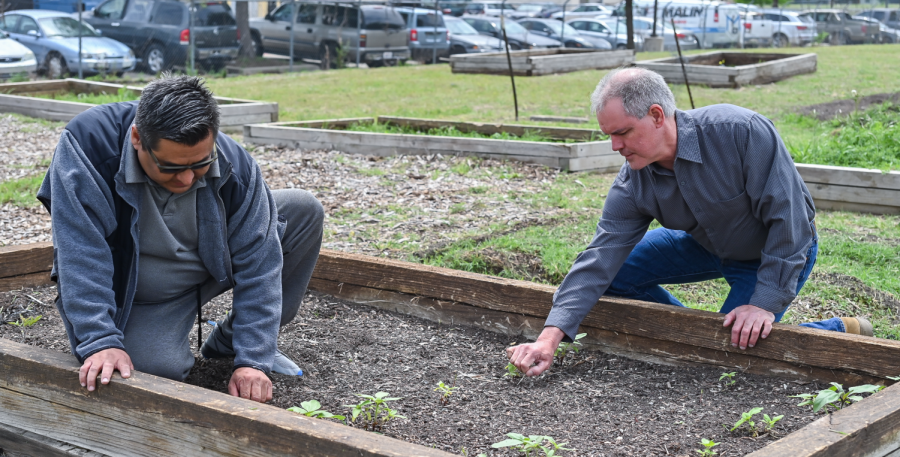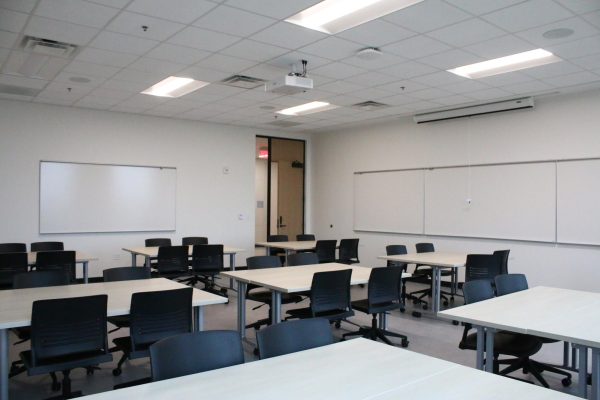Facilities department adopts eco-friendly landscaping
Noel Castro and Jeff Hughes pull weeds out of the Eastfield Community Garden.
April 25, 2023
Facilities has adopted a zero-waste initiative according to standards posted by Dallas College’s sustainability office.
Around $27,000 of electric trimmers, edgers and other related equipment replaced gasoline-powered equipment previously used by landscaping, said Sustainability Coordinator Ted Spradley. New equipment will now be checked to maintain low carbon emissions.
“They cost a little more but we consider this part of our future-proofing efforts,” Spradley said.
Reducing expenses by going green is a key component of those efforts, but it also prompted eco-friendly lawn care in the community. Not only does it save water, but it’s also cutting down a lot of the emissions we put out. — Adam Qualkenbush
The sustainability office at Eastfield identified emissions, fuel and water usage as problem areas that needed to be addressed.
Although total zero-waste landscaping is impossible to attain, there are benefits in cutting waste, said facilities manager Adam Qualkenbush.
“Not only does it save water, but it’s also cutting down a lot of the emissions we put out,” Qualkenbush said.
The change to electric equipment meant facilities could cut fuel expenses almost entirely.
“We just have to charge the batteries,” Qualkenbush said.
Facilities is also investing in a smart irrigation system for all Dallas College campuses.
The irrigation system can anticipate weather and water accordingly. Flow monitors within the system detect leaks and automatically shut off the system, preventing water from being wasted.
Changes were only recently possible.
“If you asked us to use electric-powered equipment two or three years ago, it wasn’t powerful enough for us to do it,” Qualkenbush said. “It worked for a homeowner who ran it for 15 minutes, but our guys run it for eight hours a day.”
Although the new equipment is a net boon for the facilities department, the remaining gas-powered equipment won’t be replaced for a while.
“Once the technology is available, we will look to broaden our electric toolsets,” Spradley said.
For now, sustainability and facilities opt for diesel vehicles that are clean-idle, where gas-powered motor emissions are lower than federal limits by reducing consumption when the vehicle is not actively cutting.
Vehicles are also checked to ensure they meet the sustainability office’s standard for low emissions.
Qualkenbush anticipates a full leap to electric once the technology advances further.
“The technology is finally getting to where it makes sense for us to [switch],” Qualkenbush said.















